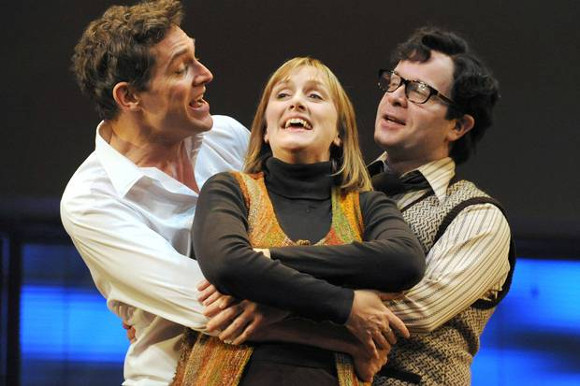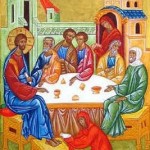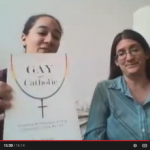This post is one in a series on friendship, explored through the lenses of Stephen Sondheim’s Merrily We Roll Along and C.S. Lewis’s The Four Loves.
When my friends gathered to discuss friendship, we kept reaching for analogies drawn from families — both biological links, like siblings, and chosen families, like the women who settled down in Boston marriages. More than once, the people chatting at my party, when looking for a word to describe what a friend meant to them, said, “He’s basically a brother — actually, closer than my brother.”
Familial relationships are aromantic and non-exclusive. They represent a strong commitment, that can’t be dissolved easily, even if the original rapport has faded. So, if we model our ideals of friendship on our experience and idealization of the family, what happens to people who come out of weak or dysfunctional families?
There have been a few groups in various sects which have wanted to strike references to God as Father from their respective liturgies. When referring to the Trinity of the Father, Son, and Holy Spirit, they use the form “Creator, Redeemer, Sanctifier.” I’ve heard a couple rationales for the switch; the most common is that the new phrase is gender-neutral. But another tack I’ve head taken is that not everyone has a good experience with his or her father, and referring to God in the context of that broken relationship may be painful or counterproductive.
People without siblings or in poisonous families might find themselves similarly distanced from the kind of analogies that felt natural to us when discussing friendship. Without a positive siblingship, or without any siblings at all, “brother/sister” is an abstract name for a kind of relationship, not a experiential model for exalted friendship.
For one thing, families are smaller than they’ve been in the past. There were a lot of only children at my party, and, if there aren’t siblings at home, there are fewer places to go to make up the gap. Fewer people live enmeshed in extended families, where cousins and vaguely-related neighbors abound.
And, going back to my mention of Boston marriages at the beginning, there are fewer people taking a friend or a relative into their house, putting them at the center of their life — enough so that the phrase “Boston marriage” needed to be defined for the room when it was used, and pretty much no one had an unmarried aunt or uncle living with them growing up.
The assumption is that not being “on your own” is a little bit pitiable (witness the scorn directed at the ‘boomerang generation‘) and that including people outside the nuclear family in your home and incorporating them into your long term plans is generally more of a burden than a blessing.
It’s a poor foundation to build a philia-focused friendship upon.













